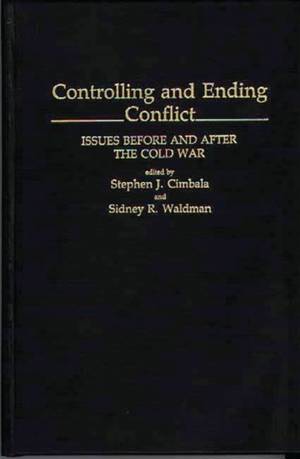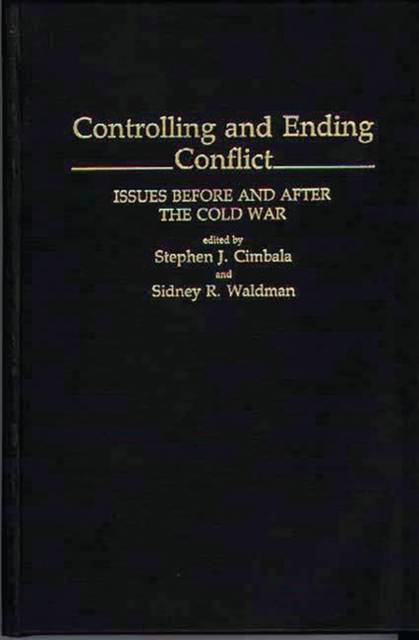
- Retrait gratuit dans votre magasin Club
- 7.000.000 titres dans notre catalogue
- Payer en toute sécurité
- Toujours un magasin près de chez vous
- Retrait gratuit dans votre magasin Club
- 7.000.0000 titres dans notre catalogue
- Payer en toute sécurité
- Toujours un magasin près de chez vous
Controlling and Ending Conflict
Issues Before and After the Cold War
Stephen J. Cimbala, Sidney WaldmanDescription
Knowing how to end war and to prevent the escalation of conflict is of paramount importance today when weapons of mass destruction have spread beyond the control of major powers and democratically accountable governments, and when regional and global stability have become more precarious. Stephen Cimbala and Sidney Waldman have drawn together prominent analysts with different perspectives to discuss key issues before and after the Cold War. This authoritative and provocative study assesses military and political strategies of serious concern to military historians and professionals, political scientists, academics, and policymakers.
The book covers all the major aspects of conflict termination before and after the Cold War and defines the basic concepts and principles involved. Noted contributors offer insights into how military and political strategies to end and limit various types of conflict must adapt to political change, to nationalism, irredentism, and boundary disputes. Chapters deal with deterrence, Soviet military doctrine, an American-Soviet war, the changing role of nuclear weapons, behavioral and institutional factors, the maritime component, civil wars, coalition war, nuclear deterrence and political hostility. The book ends with new determinations about the major issues and points to future research agendas.Spécifications
Parties prenantes
- Auteur(s) :
- Editeur:
Contenu
- Nombre de pages :
- 296
- Langue:
- Anglais
- Collection :
- Tome:
- n° 119
Caractéristiques
- EAN:
- 9780313274770
- Date de parution :
- 30-12-91
- Format:
- Livre relié
- Format numérique:
- Genaaid
- Dimensions :
- 162 mm x 241 mm
- Poids :
- 616 g

Les avis
Nous publions uniquement les avis qui respectent les conditions requises. Consultez nos conditions pour les avis.






